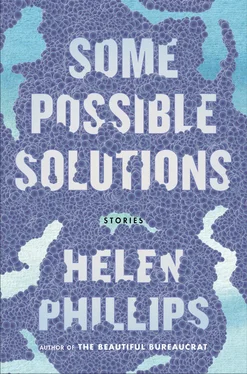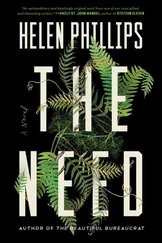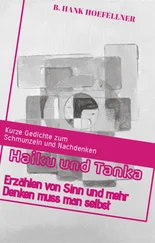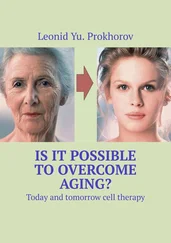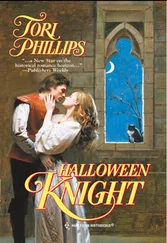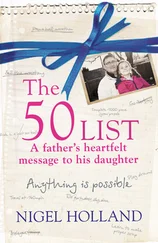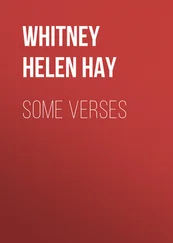Though Bill and Lill have never needed such gestures from me. They’ve been self-sufficient from the get-go, they’ve always owned themselves. Sure, they’re affectionate enough with us — they’ll nuzzle up against us when they get drowsy, and when they were babies they’d crawl over to us croaking Mamama Dadada in their brand-new voices. But there’s always been a line in the sand, a not-needing, as though we’re just icing on the cake. When they were toddlers they’d pick things up off the floor, a piece of thread or a crumb, and slowly, blissfully examine whatever it was for so long that I got scared. No matter how many times I called their names, they remained focused, showering the pebble, the key, the spoon with more attention than they’d ever shown me or Thomas. And when they sleep, their faces become so still and solemn, their limbs so shiny, that I can tell they’re traveling far away, to ingest the mercury or radiation or whatever it is they need.
Here, now, in the middle of Field 5, they laugh up at the tornado like bullies, their broad white collars plastered to their skinny necks. Thomas parks the truck askew and we leap out and run across the field with the wind pushing us forward, and I feel hot and cold, hot and cold, and they’re waving at us like we’ve just showed up for a picnic. A tennis racket swirls above them, a frying pan, a flowerpot. We’re halfway to them when the wind flips on us and then it becomes as hard as walking in a rowdy crowd. We have to elbow our way toward them, but I don’t mind fighting through something to get to them, I always feel that way anyhow.
They’re holding hands, hopping up and down, the wind blurring their faces, twisting and torturing every sound they make.
“NA!” Lill screams.
“DO!” Bill screams.
“TOR!”
“NA!”
“DO!”
The exact second I realize, with knee-weakening relief, that it’s human syllables they’re shouting — it’s right then that the sheet of corrugated metal shoots across Field 5, shoots as if someone shot it from a gun, it comes so swift and sudden, bisecting the field, skimming fast toward Bill and Lill, slicing the slim bellies of my aliens. I grab my own midsection, it’s as though I myself have been cut, my dress ripped open, my gut ripped open — the twins sink to the ground, blood seeping out all around them, I’m beside them as if by magic, as if I teleported the twenty feet dividing me from them, I’m trying to gauge how badly they’re damaged, I’m holding the pieces of them together, the flaps of skin beneath her sliced pinafore, his sliced suspenders, Bill’s wound in my left hand, Lill’s in my right. It’s not for nothing I took those nursing classes — quickly I determine that their cuts are not as deep as they seem, which is a very good thing, because I have no way to acquire transfusions of alien blood, this gooey blood with its uncanny glow, my hands all syrupy now with its brightness.
They aren’t crying — another hint, as if any more are needed — but instead gaze up at me with strained, shocked, enormous eyes. Their lean arms, their lean legs, small bleeding stars against the wheat and the dirt. We’re crouched down so low to the ground that the wind can’t find us.
“Are we dead?” Lill wants to know.
“Not at all!” I tell her. “Not even a little bit.”
“Mamamama,” Bill says.
“Billyboy,” I say. “Lillylady.”
Only then do I remember Thomas. I look over my shoulder, assuming he’s inches behind me, his hands itching to comfort and to hold. But he’s still twenty feet back, down on his knees, his arms crisscrossed over his chest.
It’s the blood, the first-ever sight of the blood, that’s done it. Never mind that I’ve been telling him. Never mind that they need him now, that we need to carry them back to the truck and make our way through the tornado and get home, where I can sew them up just fine and give them hot dogs with jam and put them to bed so they can visit their galaxy and fetch whatever it is they need to survive.
“Thomas!” I shout. I know he’s the easygoing kind of guy who can adjust to anything. Why else would I have married him? Life is long. “Come here, T.”
But he’s stuck. He’s staring at them like they are wrong.
Noticing (noticing, they’re always noticing) their daddy’s dread, Lill and Bill meet his stare.
“Daddy?” they request.
But he stays put.
“ Daddy ,” I command.
“They’re glowing.” He’s shaking his head.
“Who’s glowing?” Lill says.
“And their blood is green .” He blinks too many times.
“Whose blood is mean?” Bill says.
“Yeah, they’re aliens ,” I try to mouth to him so they won’t understand. But nothing gets past those two.
“Aliens,” they murmur, looking down at themselves in wonder, examining their smudged limbs.
“You won’t melt,” I yell at Thomas, whose arms remain crossed over his chest. “You won’t die or be poisoned or turn into an alien or anything.”
He keeps staring.
“Believe me,” I say, “I’ve tried everything. I’ve tasted their saliva and licked their eyelids. I’ve swallowed bits of their hair and I’ve spread their snot on my forearms.”
Bill and Lill laugh that same mysterious laugh they’d laughed at my belly button when they were little. They’d crawl over to me and pull up my shirt and put their lips against my belly button as though they were doing mouth-to-mouth. Another hint, of course — that fascination with and amusement at their humble human mother.
Still on his knees, Thomas leans away from their laughter.
“Their skulls,” he chokes.
“Whose skulls?” Lill stops laughing to ask him this, almost coldly.
“Who’s dulls?” Bill echoes.
I know what Thomas means. Times like this, when they get laughing, you can see the blood vessels on their foreheads swelling, pulsing eerily.
But those pulsing heads are resting exquisitely against my hip bones and my fingers are pinching together the flaps of their sliced tummies as tight as tight can be.
“It doesn’t matter,” I say to him.
I look down at my two, my Bill and my Lill, and see that they have already forgiven him, that they’ve already forgiven me, that their forgiveness stretches backward and forward toward a distant universe.
Thomas, though, keeps his arms crossed over himself until the moment when he lets the wind knock him onto all fours, and he crouches there in Field 5 like a beast, an earthly creature through and through.
And then, slowly, crawling beneath the force of the wind, he comes toward us, hand knee hand knee hand knee hand knee hand, until his fingertips touch the oozing, shimmering blood that’s already begun to turn the soil into a new kind of mud.
Other, terrible things had happened, but this was the worst: a Friday night and we had free tickets to either a 6:30 or 8:30 movie, so, after meeting on a frigid street corner beside a cold golden statue of either a pregnant woman or a bull, we went to the theater and discovered that one movie was about child prostitutes in Bangladesh and the other was silent. Don’t get us wrong, we like silent movies, but already the world was silent enough. It had been silent for days now. Even though the pretty girl at the counter assured us: There will be music, there will be live music, a live musician , still the word “silent” stuck with us and we couldn’t bear it so we left. Abandoned by our plans, our images of “a movie in Manhattan,” maybe “dinner at a diner afterward,” we had nothing to cling to but our swiftly fading conviction that we could make fun anywhere, out of anything, like people who make love in the laundry room or station wagon. We walked up the cold boulevard commenting on dresses in store windows (but it was too cold to look at such dresses, I had to turn away from the sight); we welcomed an alternate sight, the sight of a cathedral, until we noticed the men dying on the steps of it. They weren’t dying, not really, I guess, but then again we’re all dying. The dying men burrowed into dirty sleeping bags. Then: a hotel. Walk in like you own the place, like you don’t have holes in the crotch of your jeans where your thighs rub against each other, like your shoelaces aren’t dirty with dog shit, et cetera, like you’re wearing lipstick rather than Vaseline. You’ll see the lobby is made of pure gold. That vase containing a hundred burgundy roses — it takes up far more space in the world than you, it produces far more beauty than you, you shrink before it. Crumpled up this way, I ruined the illusion that we owned the place, now we’ll never know how much more gold, how many more roses, we might have seen in the bathrooms off the lobby; we left with aching bladders. There was one last thing we could do: a store where I had sometimes been known to purchase something like a normal person. Limping with failure, we approached that store. What it had was clothing of many colors and what I wanted was clothing of many colors. I fingered the sweaters. Help me, I beg of you, help me. It was then that it happened, right then, the worst part, my hand touching many different sweaters at once: royal blue, heather gray, bubblegum pink, traffic cone orange, despair. They play loud, confusing music in this store, music designed to alter the electricity that dictates your desires. It goes without saying: we left empty-handed. Don’t dare look back at the racks as you exit.
Читать дальше
